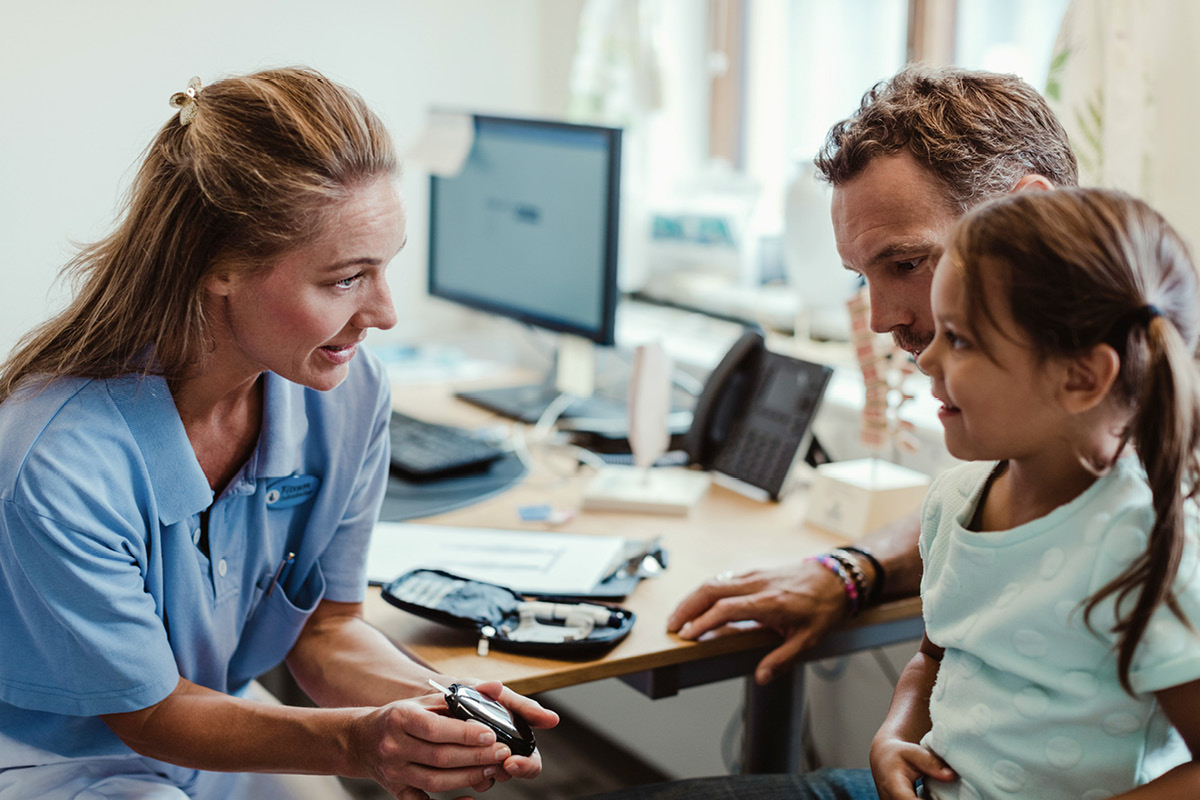
You’ve probably read about a purported link between COVID and type 1 diabetes (T1D)—something Breakthrough T1D is funding research into! The hypothesis is SARS-CoV-2 (the virus that causes COVID-19 infections), is causing more people to develop T1D. We’ve covered it here and here. Recently, several Breakthrough T1D-funded researchers decided to study this hypothesis—and here are the results.
The Study
The ASK Study Group and the Fr1da Study group, which are Breakthrough T1D-funded T1D screening programs led by Marian Rewers, M.D., Ph.D. and Anette-Gabriele Ziegler, MD, respectively, set out to examine whether there is any link between previous SARS-CoV-2 and T1D autoimmunity. To do this, they screened over 50,000 youths aged 1-18 in Colorado and Bavaria, Germany for previous SARS-CoV-2 infections and several T1D autoantibodies. (Autoantibodies are a sign of autoimmunity and are an accurate predictor of future T1D diagnosis).
After screening, they looked at the incidence of T1D autoantibodies in those that had a prior SARS-CoV-2 infection and those that did not. They found that “the prevalence of multiple or single high-affinity islet autoantibodies did not significantly differ between youths with vs without previous SARS-CoV-2 infection in Colorado or Bavaria.” In other words, the individuals who had COVID were no more likely to have T1D autoantibodies than those that didn’t previously have COVID.
See the data here.
An Important Caveat
This study confirms what the science has shown to date: we have no evidence that COVID causes T1D. However, the study does have some limitations.
Specifically:
- This study is cross-sectional, meaning it takes place at one point in time. We do not know whether the individuals with T1D autoantibodies and a prior SARS-CoV-2 infection developed those antibodies before or after the infection.
- The sample sizes are relatively small (4,717 individuals in Colorado and 47,253 in Germany)
- A longitudinal follow-up is necessary to understand whether preexisting T1D risk is accelerated by SARS-CoV2 infection.
Breakthrough T1D will continue to follow the science to see how this develops.
Read the study here.